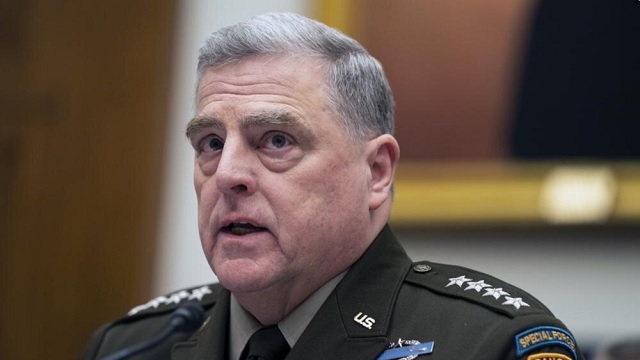The top US general says the United States should consider more bases in Eastern Europe to defend itself against Russian aggression. But Army Chief of Staff Mark Milley told the U.S. Congress that troops should serve in rotation and not have permanent deployments. General Milley said the bases could be funded by other countries like Poland and the Baltic states that want more American troops.
Defense Secretary Lloyd Austin said any attempt for more security measures in Eastern Europe is an “ongoing process” that will probably be discussed at the NATO summit in June.
General Milley and Secretary of Defense Austin were testifying before the House Armed Services Committee on the 2023 draft budget, but the session was dominated by the Russian war against Ukraine and possible U.S. efforts to help Ukraine and to strengthen security throughout Europe.
Mr Milley was asked about the need to deploy forces on Europe’s eastern flank, which NATO allies worry could be Russia’s next target.
“My advice would be to establish permanent bases, but not permanent stationing (of forces), by circulating forces on a permanent basis and not by deploying them permanently,” he said.
“I believe that many of our European allies, especially those like the Baltic states, Poland and Romania and others, are very, very willing to establish a permanent basis. “They will build them, they will pay for them,” he said.
Mr Austin added that he had recently met and talked with the leaders of the Baltic states, noting that they made it clear that they valued American troops there.
“We will continue to work with NATO to assess what the needs will be. “We will be part of this solution,” he said.
The Pentagon is continuing to review the number of troops across Europe and consider whether to add more or relocate some of those already there.
Gen. Milley said Tuesday that although no decision has been made yet, there is a possibility of an increase in US troops in Europe and that this need could be met by rotating forces.
These forces are deployed for shorter periods of time. Permanent forces are often deployed for two to three years.
General Milley also acknowledged that Moscow’s aggression in Ukraine and its continuing demands that the US and NATO reduce troops and weapons in European countries along Russia’s borders signal a protracted conflict in the region that could extend beyond Ukraine.
“I think this is a conflict that will last. “I do not know if it will last for decades, but for years for sure,” said General Milley.
“I think NATO, the United States, Ukraine and all the allies and partners that are supporting Ukraine will be involved for a considerable time,” he said.
Secretary Austin added that broad Russian demands were not acceptable to NATO and the US is looking at ways to provide additional assistance and training to countries, including non-NATO allies such as Georgia and Finland.
Both said the only possible way to deter the Russians might have been to deploy US troops on the ground inside Ukraine, but this option was rejected because it posed the risk of a wider US war with Russia.
General Milley said he was not sure if Russian President Vladimir Putin could be restrained as aggression against Ukraine had been a long-term goal for Moscow.








